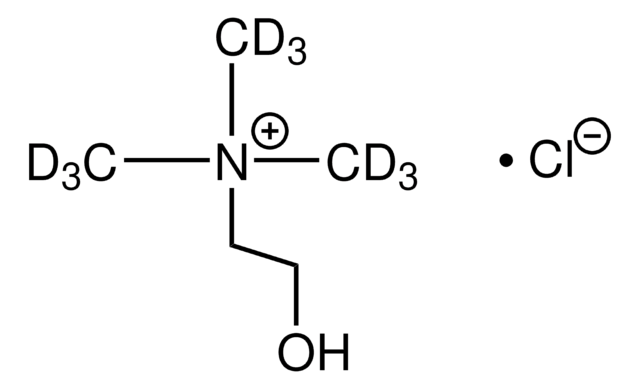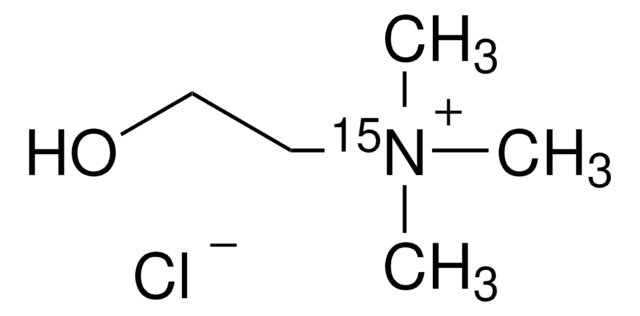1133547
USP
Choline chloride
United States Pharmacopeia (USP) Reference Standard
Synonym(s):
(2-Hydroxyethyl)trimethylammonium chloride
About This Item
Recommended Products
grade
pharmaceutical primary standard
manufacturer/tradename
USP
mp
302-305 °C (dec.) (lit.)
application(s)
pharmaceutical (small molecule)
format
neat
SMILES string
[Cl-].C[N+](C)(C)CCO
InChI
1S/C5H14NO.ClH/c1-6(2,3)4-5-7;/h7H,4-5H2,1-3H3;1H/q+1;/p-1
InChI key
SGMZJAMFUVOLNK-UHFFFAOYSA-M
Looking for similar products? Visit Product Comparison Guide
General description
Application
- Extraction of Bioactive Compounds: Choline chloride, combined with sucrose in natural deep eutectic solvents, facilitates the formation of aqueous biphasic systems. These systems are applied in drug extraction processes to improve efficiency and selectivity, particularly in pharmaceutical applications (Ghaffari et al., 2024).
- Extraction of α-Glucosidase Inhibitors: Utilizing choline chloride-based deep eutectic solvents significantly enhances the selective extraction of α-glucosidase inhibitors from waste seeds. This application is particularly valuable in the development of therapeutic agents for diabetes management, showcasing its versatility in pharmaceutical extraction processes (Liu et al., 2024).
Substrates
Analysis Note
Related product
Storage Class
11 - Combustible Solids
wgk_germany
WGK 1
flash_point_f
Not applicable
flash_point_c
Not applicable
Choose from one of the most recent versions:
Certificates of Analysis (COA)
Sorry, we don't have COAs for this product available online at this time.
If you need assistance, please contact Customer Support.
Already Own This Product?
Find documentation for the products that you have recently purchased in the Document Library.
Customers Also Viewed
Our team of scientists has experience in all areas of research including Life Science, Material Science, Chemical Synthesis, Chromatography, Analytical and many others.
Contact Technical Service









